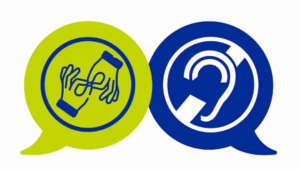Can A Non-Native Speaker achieve the Proficiency level Of A Native Speaker?

There are many reasons to learn a foreign language. You might want to speak a new language in order to be able to communicate with others or navigate a foreign country. Maybe you want to read books or watch movies in their original language or open up a wealth of new information on the internet. A new language may also be a tool for success, benefiting one’s career and professional life. Whatever your reason for studying a foreign language, you may be wondering about the level of proficiency that you can achieve while learning.
Is it possible for a non-native speaker to learn a language and become a native speaker?
Can a person be considered to possess native proficiency in more than one language?
Let this article enlighten you!
What Is A Native Speaker?
Linguists and dictionaries alike define a “native speaker” as a person who has internalized a language from childhood. The language learned and used during early childhood defines the native language of a person. Native speakers learn their mother tongue organically and do not have to study the language as a foreign language. This does not mean they do not need to learn at all, however. If you grew up with English as your native language, you likely were taught spelling, vocabulary, and grammar in primary school.
Learning a New Language
If you are a non-native speaker of a language and you try to obtain native level proficiency, you may be feeling discouraged that you missed your chance. Don’t give up just yet! A lot is possible with the combination of hard work and a good language training. When it comes to learning a language, the two go hand in hand. Hard work is something beyond spending money and time on books and courses.
Step 1: Work Hard to become a native speaker
Hard work means consistency, repetition, and doing everything possible to achieve your proficiency goal. To reach the level of competence in a language that a native speaker has, it is not enough to only want your goal. You must work hard and be consistent on learning a foreign language.
Step 2: Set Your Goals
Here are some questions that will help you set your language learning goals:
- Why do I want or need to learn this language?
- Do I want to use it for personal or professional reasons, or both?
- What should I do in the short term to achieve the level of competence I need? In the long term?
- Am I willing to consistently invest in my goal for a year or more?
Step 3: Take Language Courses
When learning a foreign language, you should consider language training. There are many training programs to choose from and they can help you achieve your goals. Choose the program and the training provider that offers the highest quality of teaching. The learning process is very dependent on not only the student’s effort, but also the quality of the education provided.
If you want to learn a foreign language and be as fluent as a native speaker, it is important to understand that language is complicated. It requires more than just understanding certain rules to understand its nature.
There are certain measures that must be taken in order to achieve native proficiency. Interacting with native speakers is one of these important steps. You can go to the country where the language you are learning is spoken to immerse yourself fully in the language and culture. You can also look for friends or message buddies through online services. There are many online services available for foreign language learners looking to connect with native speakers these days.
There are many courses that keep you on the same level of conversation for years, but that is not what you want! If you feel like you are no longer satisfied and want a challenge; maybe it’s time to tell your training provider to help you level up your skills.
Learn the language in an easy way
Native speakers learned their language through the sound of their mother’s voice, writing notes to their friends, and reading books that shaped their culture. Non-native speakers can also do this by starting to learn at a very young age. Involve all your senses. It is one of the fastest ways to learn a language to native proficiency, because you are doing what native speakers have been doing since childhood.
In short, speaking a language to native proficiency is a worthwhile challenge, but it is also a long and difficult journey for anyone. You will have to be clear in your motivation, studying plan, and the goal you would like to achieve in order to succeed.
But no matter how difficult it is or how long it takes, just know that you can do it. Just keep learning and loving the language in order to become a native speaker. The most important thing is that you are communicating with people, broadening your horizons, and sharing your thoughts. This is the purpose of language, regardless of race or nationality. Language can connect you and make you feel part of a new culture. This is the beauty of our humanity.




